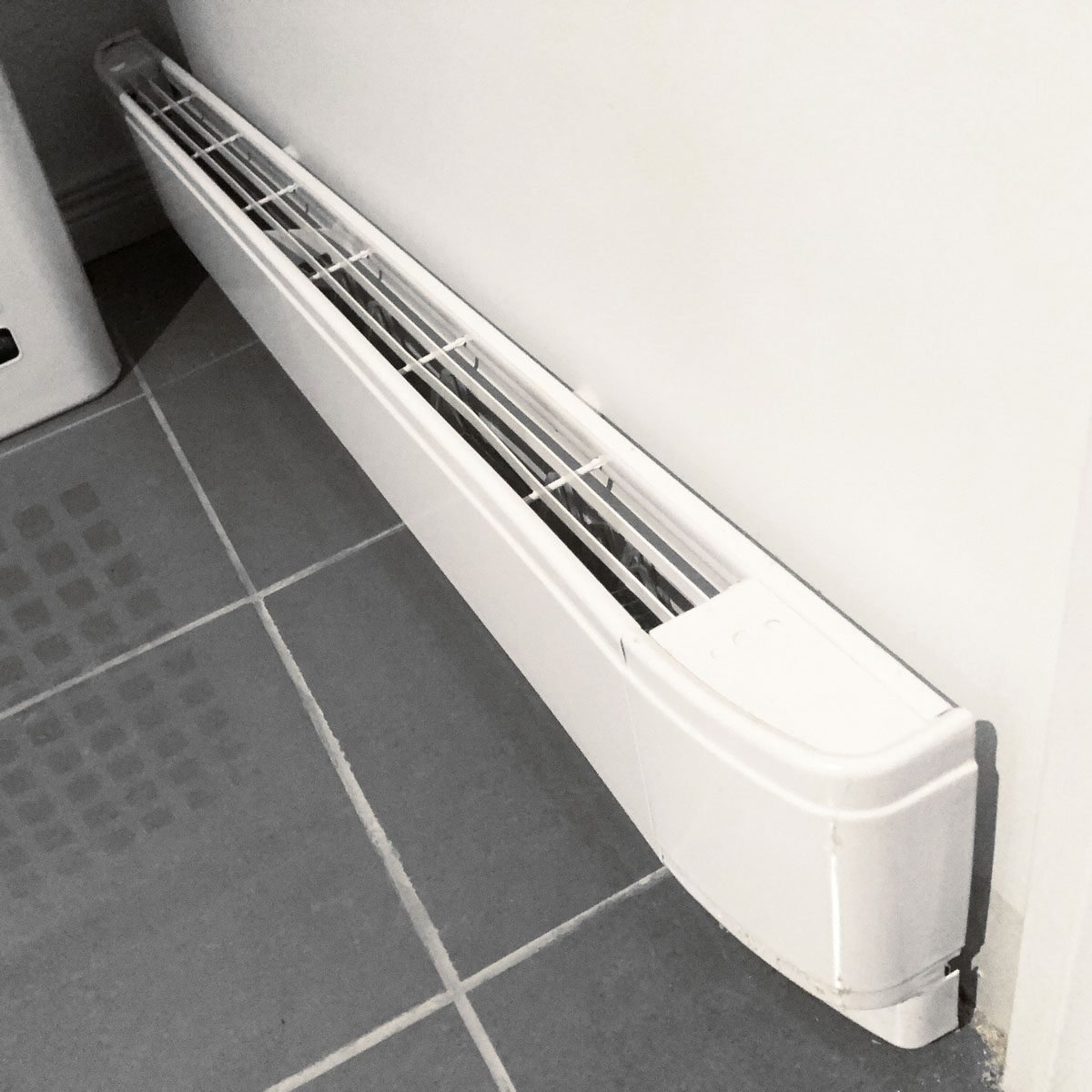9 Best Electric Baseboard Heaters

Choosing a Baseboard Heater
If you’re in the market for a baseboard heater, it’s easy to be overwhelmed by all the options on the market. One of the greatest advantages of baseboard heaters is their versatility. But that also means their sizes, heat outputs, additional features and cost varies considerably.
Convection vs. Hydronic
To start with, there are two types. Convection baseboard heaters use electrically heated metal fins to transform cool air into warm air through the heat-transfer process of convection. They’re usually hardwired into a home’s electrical system, but some portable options plug into a standard electrical outlet.
Hydronic baseboard heaters use an internal reservoir of heated liquid to produce mostly radiant heat. Like a convection baseboard heater, metal heating fins surround the liquid reservoir to promote heat production through a secondary convection process, supplementing the radiant heat. An electric element usually heats the liquid reservoir, but some models can be tied into a home’s central heating boiler system to operate without electricity. Electric hydronic baseboard heaters usually must be hardwired into a home’s electrical system.
Convection baseboard heaters are affordable and heat up rapidly, but they’re not particularly energy-efficient. Hydronic baseboard heaters are more expensive and take longer to heat up, but are more energy-efficient and stay cool to the touch.
Some features are common to practically every baseboard heater — a powder-coated exterior that resists scratches and corrosion, and an automatic overheat shutoff to ensure safe operation. Many are certified by an independent safety inspection agency, like Underwriter Laboratories (UL) or Electrical Testing Laboratories (ETL). That means the heater satisfies certain safety standards.
To help you make sense of all the options and determine the best baseboard heater for your home, consider the following top-rated products.
No comments